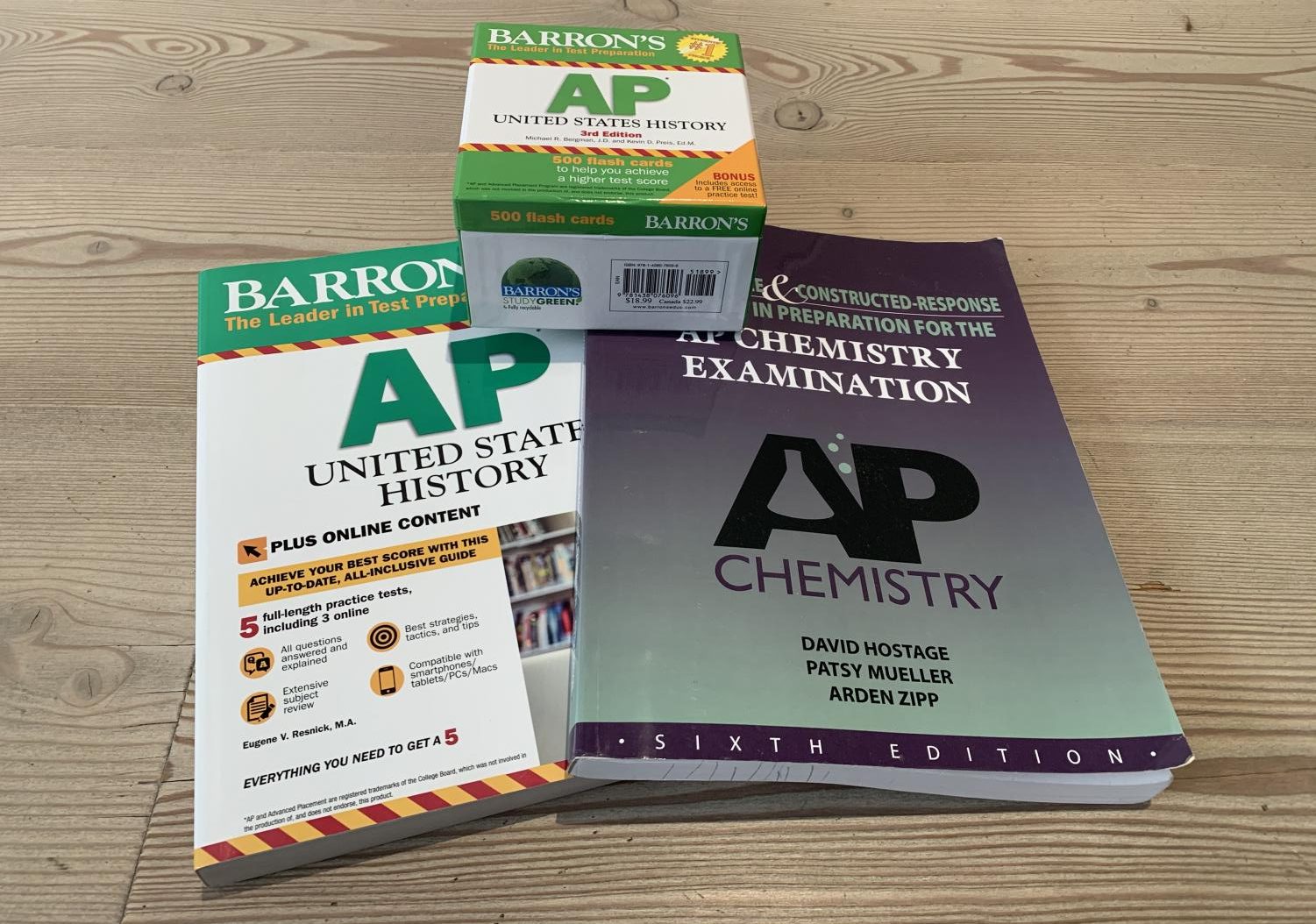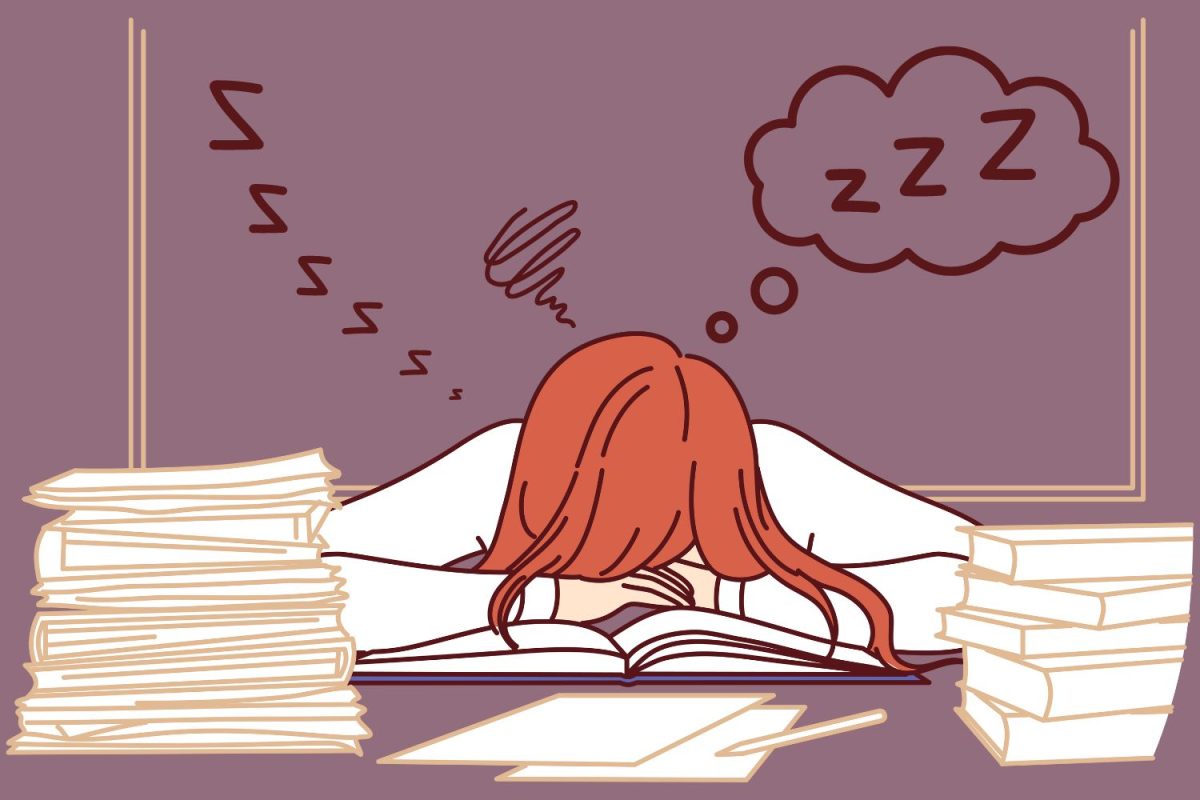The College Board has hosted AP exams in the month of May, tracing back to 1954. Now, 66 years later, with the outbreak of COVID-19 requiring global citizens to quarantine, marks the first time in history where the exams will be held remotely.
For Ethan Otero (’21), who takes six AP classes, the adjustment of having less material is beneficial
“I’m personally happy about it because there is less to study,” he said.
Otero pointed out that due to online learning making him less productive because of added free time, having less material to study is more feasible.
“I’m already falling behind on schoolwork since I neglect it, so the main adjustment that really benefits everyone is that they made the tests shorter,” he said.
He joked that by having less material to study, he avoided topics such as electrochemistry: a notoriously difficult unit in AP Chemistry.
However, for World Languages and Cultures Teacher Whitney Nuchereno, having less material on the exam is disappointing, mainly because the topic she had been working on the hardest with her students, reading and listening, is no longer being assessed.
“[Reading and listening is] the hardest part for them and are the skills they needed to work on all year,” she said. “Now to know that it’s not on the exam is disappointing because we improved that area from last year, and now, it’s not going to count.”
The best thing [College Board] could have done this year was cancel the exams and use predicted scores. The level you are doing in that class at that moment is a much better indicator on how you will do in college than this exam.
— Ethan Otero ('21)
For Lindsay Harris (’20), having the exams not cover all the material from the year is frustrating.
“We spent six to seven months learning the material [for the course] … to put it into a 45-minute test is a bit ridiculous,” she said. “I don’t think 45 minutes is enough to capture the amount of work we have put into these courses, and all the material we have had to learn.”
Though College Counselor and Grade 12 Dean Ivan Hauck said that having 45-minute tests isn’t sufficient to demonstrate a student’s knowledge, he said that it tests a different type of learning.
“The way that you process information and quickly take in a question and filter all the information you have in a nice, concise answer … is a more important skillset in terms of real-world thinking,” he said.
Yet, Harris said that by most tests having FRQs as their assessment instead of MCQs, it is unfair for students who excel more in MCQs.
“Some students are better at multiple-choice than FRQs, and it puts an unfair balance to the kids who are better at FRQs,” she said. “They should have made it more in the style of the exam that was supposed to happen.”
Hauck also said that this adjustment is the best alternative College Board could have thought of in the current circumstances.
“A limited test means that it provides fewer opportunities to demonstrate a wide, in-depth thread of knowledge,” he said. “But, in my mind, it’s the best that College Board possibly could have done.”
Echoing Hauck, Nuchereno said that she’s glad they are still offering the exams, and recognizes that “it could have been a lot worse.”
“I know A-levels and GCSEs were canceled, so I’m grateful we still have them,” she said. “I also recognize that the College Board needs to give them because of all the money they would lose. You have to see both sides of it.”
In contrast, Otero said that the best thing the College Board could have done is cancel the exams.
“The best thing [College Board] could have done this year was cancel the exams and use predicted scores,” he said. “The level you are doing in that class at that moment is a much better indicator on how you will do in college than this exam.”
The exams are always going to be skewed in favor of those who have more resources … Suddenly, you have something like this that is forcing every single person to re-evaluate their personal lives.
— College Counsellor and Grade 12 dean Ivan Hauck
Otero also said with students testing at home, there becomes more room for cheating.
“Cheating is going to happen. Some people aren’t as prepared as others and could cheat,” he said.
Hauck agrees with Otero, and said that cheating is inevitable all over the world, no matter the situation.
“The reality is that, yes, students probably feel more inclined to take advantage of additional resources,” he said. “A big part of the whole educational process is founded on the notion that students are responsible and proactive for their learning, which includes integrity and honesty.”
Harris echoes Hauck, and said that “there are problems that come with [the test]: test security, students cheating and not being 100% honest about the work they are doing.”
However, by making some of the exams open-book, Otero said that it levels the playing field.
“If you have notes, and prepared this far into the year, you will be rewarded,” he said. “They’re trying to make it more level.”
Although, Nuchereno said that having an open-book for subjects such as AP Spanish is not necessarily useful.
“I don’t want my students to be distracted,” she said. “Looking up one word if you don’t understand something and then not finishing is the difference between a four and a two.”
Due to there being more room for cheating and the exams being open-book with the changes to the exam, Hauck said that colleges and universities will be forced to reconsider the admissions process. He pointed out that some schools have already moved to being test-optional.
“It is going to put any university which relies on AP testing, IB testing, A-levels, any of these standardized tests, in a very challenging position to try to figure out what to do,” he said. “It’s going to be incredibly challenging for universities to make decisions about student applications with very limited, reliable information.”
Hauck also said that APs are already diminishing in their value in applications, and with them being compromised even more, he questions their future credibility in admissions.
This re-evaluation from an institutional perspective, in Hauck’s eyes, is a “revolution.”
“From an institution standpoint, [thinking about] what do they represent as an institution?” he said. “Do they necessarily need to rely on testing?”
Nuchereno also recognizes that by not having a three-hour test, it’s upsetting that they won’t be assessed on everything.
“[My students have] come a really long way,” she said. “I put a lot of time as I’m sure the students have in this class. I only want what’s best for them because I really care about them.”
Additionally, Harris said that for some of her AP classes, particularly math, learning it via Zoom makes it harder to truly grasp.
“Especially for math classes, learning something in a math classroom is much more valuable than learning it online,” she said.
To Hauck, this “game-changer” in terms of the exam adjustments puts the College Board in a tough position.
“The exams are always going to be skewed in favor of those who have more resources … Suddenly, you have something like this that is forcing every single person to re-evaluate their personal lives,” he said.













